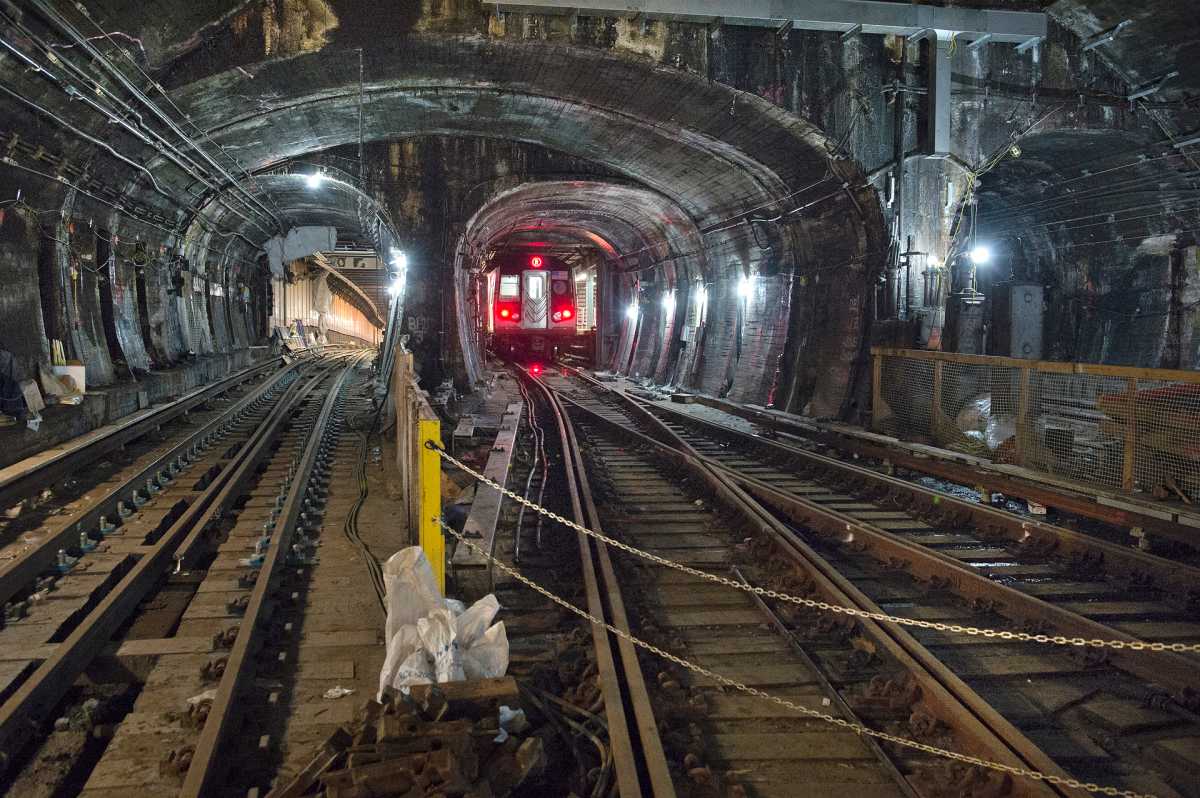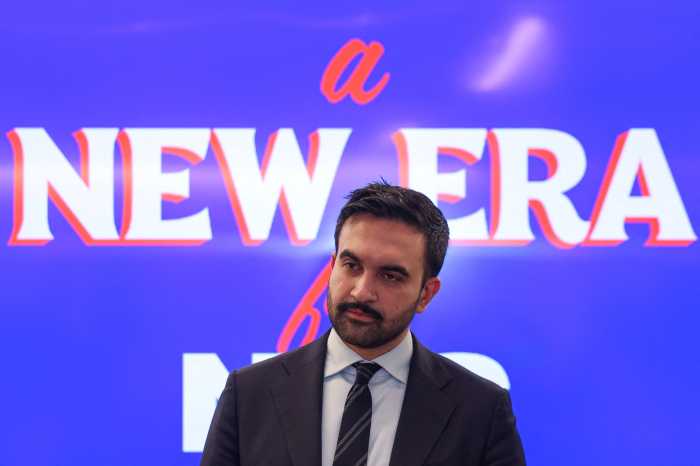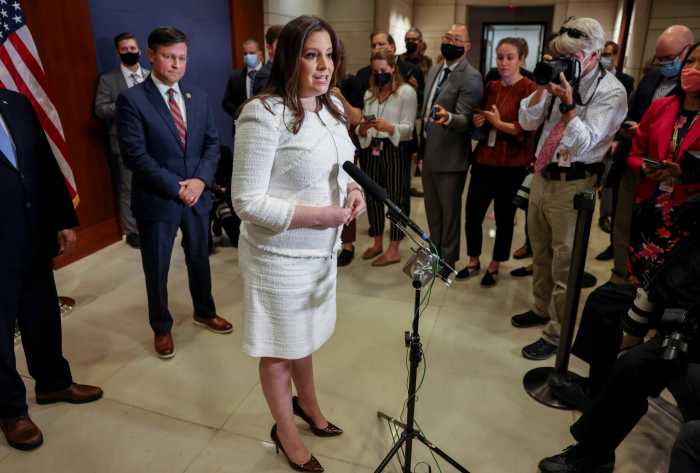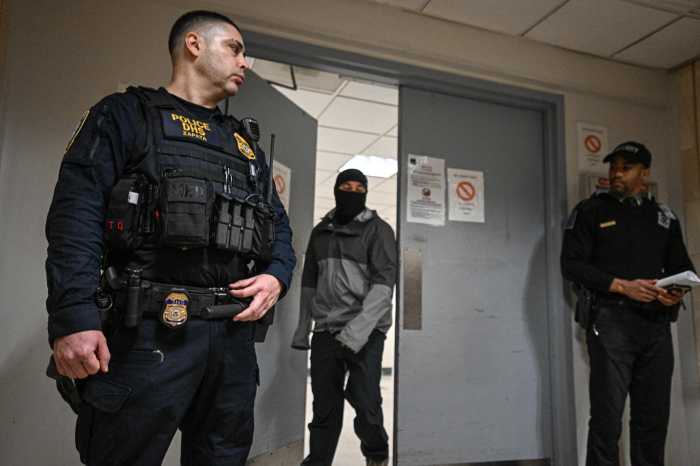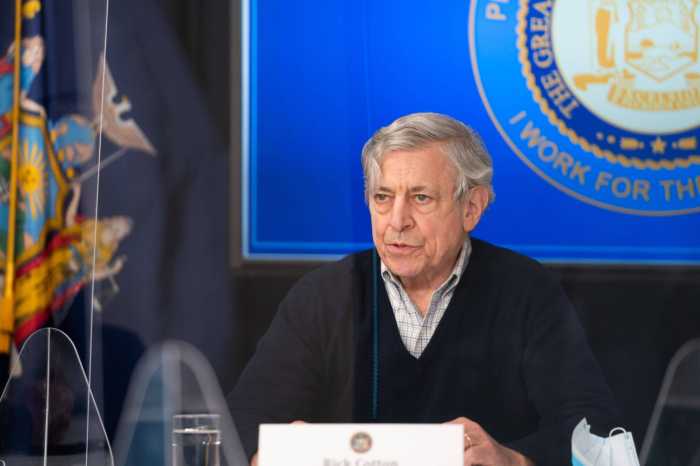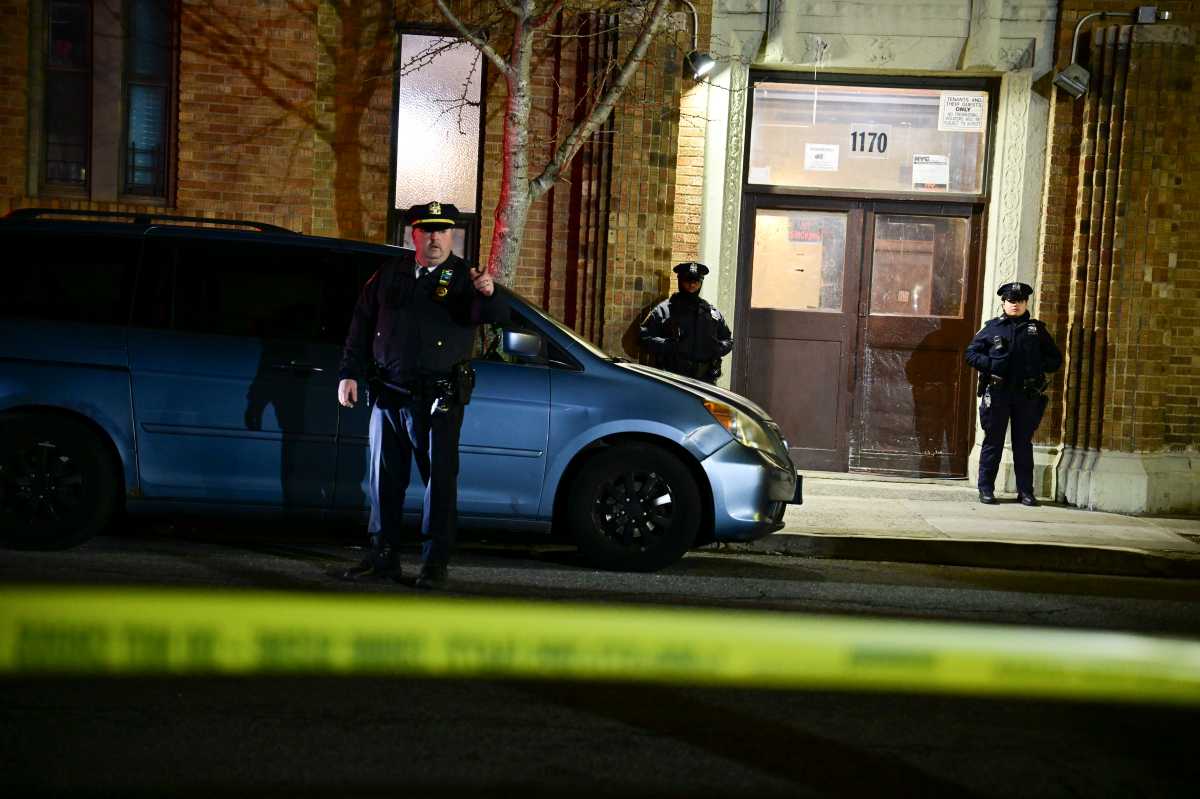More than a month has gone by since Gov. Kathy Hochul indefinitely paused congestion pricing, and with Albany in summer slumber mode, no progress has been made on a viable alternative funding program for MTA improvements.
The pause has forced the MTA to put off billions of dollars in planned improvements to subway infrastructure while editing its capital plan to focus on the most important fixes. Such a plan will likely come this fall, but already straphangers are getting a taste of the future it can expect if the state doesn’t find the alternative funding fast, or quickly turn congestion pricing on and let the toll dollars roll into the MTA.
Tuesday morning saw yet another switch failure on the subway system’s nearly century-old signal network, snarling traffic on four different lines. The MTA had to take the B train out of service for much of the day, and the A, C and D lines were impacted with severe service delays.
In recent years, the MTA invested billions in switch and signal upgrades on a handful of subway lines, replacing the antiquated system with Communications Based Train Control (CBTC). On each of the lines where CBTC has been installed, riders saw expedited train service, more frequent arrivals, faster commutes – and fewer disruptions.
Many of the 1,770 switches on the 665 miles of subway tracks used for passenger service are decades old, and about 16% of them are within 6 years of the end of their useful lifespan.
Congestion pricing was to fund $3.5 billion in additional infrastructure upgrades throughout the subway system, an essential move to keep the trains running well in this 21st-century metropolis. And the billion dollars in annual toll revenue which congestion pricing was designed to provide would allow for additional upgrades.
But congestion pricing is indefinitely delayed. The money the MTA counted on is not pouring into its coffers. Neither Hochul nor the state Legislature have done much to find alternative funding other than offer lip service promising the funding will come eventually.
Meanwhile, the subway signals and switches are failing, one by one — not simultaneously but one after another. Death by a thousand broken switches.
Every time an ancient switch or signal fails, service is snarled and commuters are late to wherever they need to be, we are reminded again just how shortsighted the congestion pricing pause is — and how costly it is to the entire city beyond whatever savings Hochul hoped to give the average New Yorker.
Our message to Hochul and the state Legislature is simple: Wake up from your slumber, and get a funding deal for the MTA done this summer with a special session. The city can’t wait until after the election or next January for a real solution.
With apologies to Winston Churchill, give the MTA the tools, and they will finish the job.



